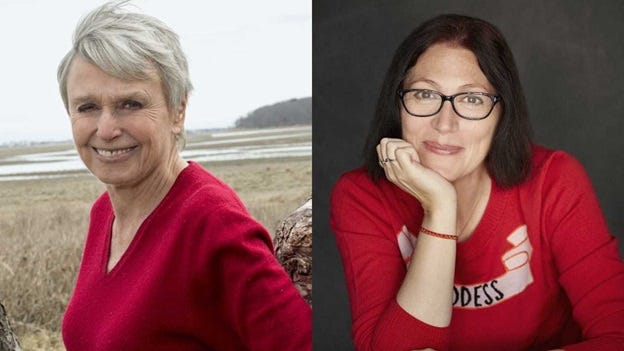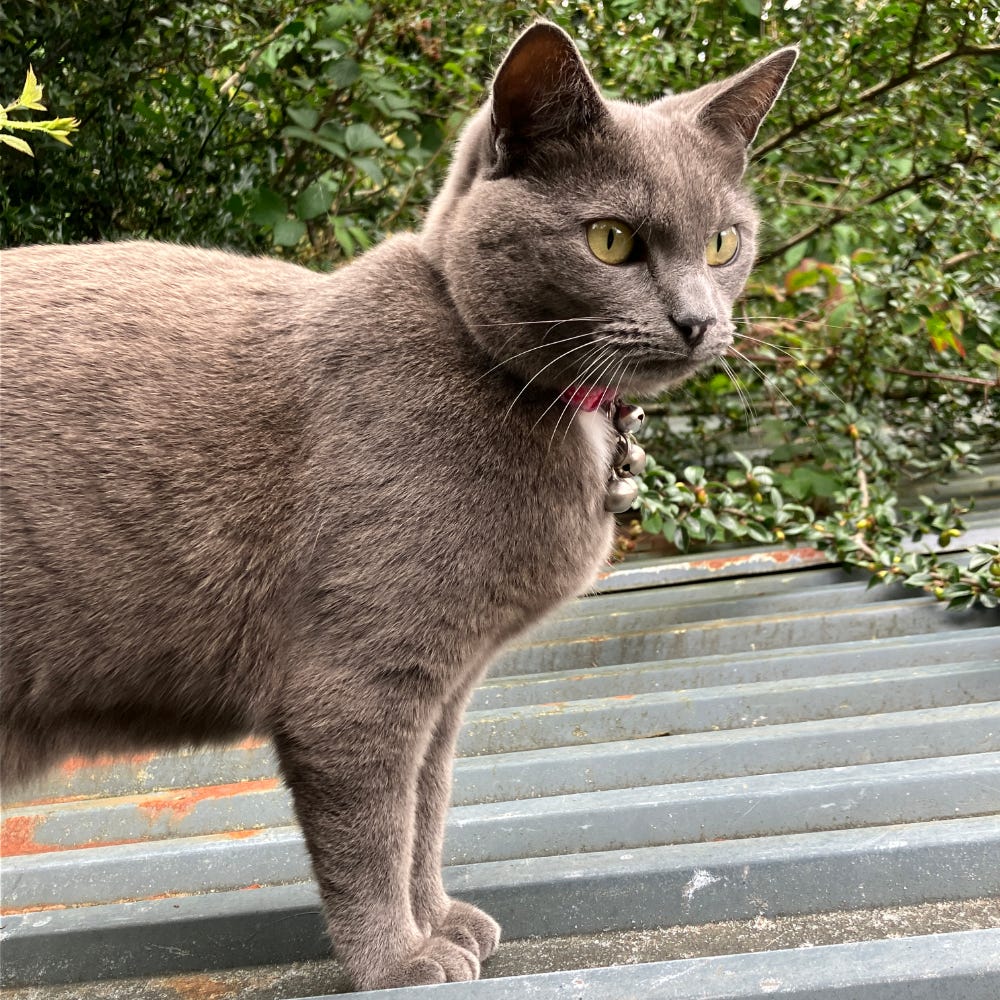Word Count 58: The problem with blurbs, Susan Cooper at the British Library
Plus BAFTA Rocliffe, Channel 4 Screenwriting Course 2024 & Cheshire Novel Prize Kids, Scriptnotes on character and voice, Amazon's AI guidelines and Taylor Swift vs Hollywood.
Well, hello there!
After too many days of obnoxiously hot weather, I’m relieved to say that my office is no longer a sweltering 30C. My brain doesn’t really function at such temperatures. (Although, truth be told, my brain being cooler doesn’t guarantee it will function better.)
Read these: We need to talk about blurbs
Book blurbs, ie the praise from authors and reviewers that’s plastered all over the cover, have been the subject of quite a lot of conversation recently after it came to light that Penguin, publisher of right-wing motormouth Jordan Peterson’s new book, had taken a critical review by James Marriott in The Times and made it sound positive on the book’s cover. They’d done the same with reviews from Johanna Tomas-Corr in New Statesman and Suzanne Moore in The Telegraph.
The Society of Authors described this misrepresentation as “morally questionable”. I’m sure that will put paid to the practice.
Barry Pierce, in GQ, argued that these reviewers don’t “have a leg to stand on” because they had “decided to throw Peterson a bone” and that they should have gone full scorched earth instead. The problem, he argues, is literary criticism is too nice, rather than that Penguin misrepresented three people’s views on Peterson’s book. Uh huh.
Helen Lewis, in The Atlantic, pointed out just how absurd blurbing has become. More contentiously, she suggested that the cause is the loss of “traditional critical culture”, replaced by online influencers, and that blurbs are really for “literary editors and buyers for the bookstores”.
Esquire’s Sophie Vershbow also weighed in, pointing out that “Authors hate them (both asking for them and being asked), agents hate them, and publishers hate them”, and that authors can give glowing blurbs for books they don’t believe in because to the social pressure to do so.
And publishing PR expert Kathleen Schmidt said that, in her experience, “Blurbs do not help sell books because the average consumer doesn’t care about them. Blurbs also do not help publicists secure reviews or other publicity.”
Like many things in the publishing industry, blurbs are irrevocably broken, but don’t expect to see change coming any time soon. Despite the fact that everyone hates them, readers don’t care, and it’s questionable as to whether they serve any purpose within the industry itself, FOMO will prevent any publishers from deciding that, well, perhaps we should just stop this nonsense. Like meetings that could have been emails, everyone does it because everyone does it.
Event: Susan Cooper in conversation at the British Library
Susan Cooper’s The Dark Is Rising series is one of my favourite of all time, so I was excited to see that she’ll be in conversation with author Natalie Haynes at the British Library on 27 October. In-person tickets are a very reasonable £14, with many discounts available, and it’s just £6.50 if you’d prefer to watch online.
The British Library has a load of really interesting events, many of which are also streamed online, so take a look at their calendar.
Opportunities: BAFTA Rocliffe, Channel 4 Screenwriting Course 2024 & Cheshire Novel Prize Kids
The BAFTA Rocliffe New Writing Competition is closing to entries at 17:00 BST on Monday 18 September, a fact I’m painfully aware of as I try to whip my entry into shape. Costs £49 to enter.
The Channel 4 Screenwriting Course 2024 will be open to entries from Monday 18 September until Monday 2 October. I won’t be entering this one again, because they don’t take reworked scripts and I’m still working on Tag. No entry fee. Indeed, if you’re successful they’ll pay you!
The Cheshire Novel Prize Kids is a competition for un-agented writers which accepts picture books, first chapter books, middle-grade novels and young adult novels. Costs £29 to enter.
Stop, look, listen: Scriptnotes Ep 609 – Dialogue and character voice
I love a good craft episode, and this clip compilation about dialogue and character voice is no exception. If you find it difficult to work out if your dialogue sounds natural, and whether your characters are each distinctive people with their own voices, this episode might help.
Craig Mazin and John August talk about aspects of dialogue such the impact of power imbalances, emotion, and subtext, and how to get characters to provide exposition without sounding like they’re only there to provide exposition. There’s also a fascinating look at how dialogue has developed from plays to silent movies to the talkies to TV, and the impact each format has had on how speech is written.
And if you’d rather read than listen, you can read the transcript instead.
Amazon releases AI guidelines
Amazon’s Kindle platform has long had rules about the quality of books published on its platform, but it has now added explicit rules about the use of computer generated text, images and translations.
We require you to inform us of AI-generated content (text, images, or translations) when you publish a new book or make edits to and republish an existing book through KDP. AI-generated images include cover and interior images and artwork. You are not required to disclose AI-assisted content.
I honestly can’t see this making the slightest bit of difference to the flood of computer generated crap that’s being published on Kindle. Software that claims to detect computer generated text just doesn’t work, to the point where OpenAI withdrew theirs because it was rubbish, so it’s hard to see how Amazon is going to be able to tell that the rule has been broken.
Read these, two: Taylor Swift cuts out the studios, and cable TV’s broken
Gotta say, I was highly amused to learn that Taylor Swift has ignored the studios and cut a deal direct with AMC Theatres to distribute her Taylor Swift: The Eras Tour film. Apparently, the studios are seething, with Universal Pictures "extra-pissed”, but it’s their own fault.
According to a report by Puck News, the Swift family hired director Sam Wrench to shoot "Taylor Swift: The Eras Tour" for a budget of around $10-20 million, and were directly discussing distribution with studios. However, at least one distributor was thinking of a 2025 release, long after the live tour had ended, and the Swifts wanted it to play in theaters alongside the tour. So, they began negotiating directly with AMC Theatres CEO Adam Aron, put together a deal in secret over a number of weeks, and announced it without any of the studios getting a heads-up.
Taylor Swift is sharp, and it seems like the studios massively underestimated her ability to know what’s best for her business and to go get it.
Meanwhile, major American cable company, Charter Communications, has finally (finally!) realised that cable TV packages are too expensive and that’s why people are cutting the cord and going streaming-only, thus undermining the whole cable TV business. Charter’s in the middle of negotiations with Disney, which appear not to be going too well. Disney wants to charge Charter more than Charter wants to pay for bundles that include channels Charter’s customers don’t watch, and Charter knows that if it bumps up prices to cover the extra cost, they’ll lose even more customers.
Both of these stories have one thing in common: The Hollywood studies are so big and so used to setting the terms of business that they don’t quite know how to handle it when someone either does an end run around them (Swift) or is prepared to just walk away (Charter). You can see the same dynamic working in the writers’ and actors’ strikes. It’s not that the studios can’t afford workers’ demands, it’s simply that they believe that compromise is death. Reaching a deal would, in their eyes, show weakness, but their real weakness is that they don’t seem to understand the reality they are now living in.
So is this the year that Hollywood is humbled? We can but hope.
Obligatory cat picture
My husband and I went up to North Wales again over the long weekend and were delighted to meet this glorious fuzzball, Indi, who was incredibly difficult to take a photo of due to the fact that she didn’t stop moving.
Indi is extremely affectionate and was very keen on getting scritches from any human who’d give them. Which was us, with great relish.
Right, that’s it for now! See you in a couple of weeks!
All the best,
Suw





